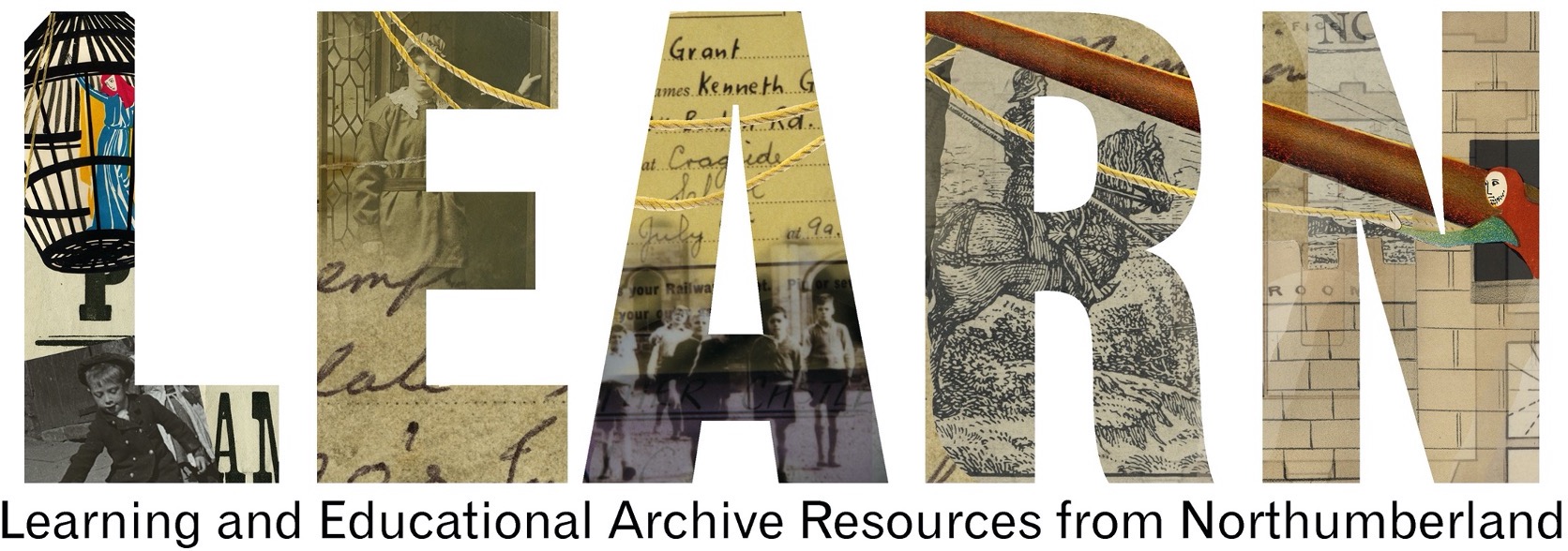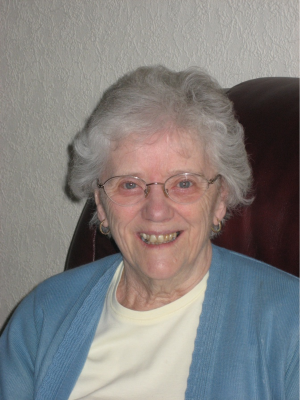Evacuation Oral Histories – Doris Y, Recorded 2008
Reference: T/487
Suggested age groups: KS1, KS2, KS3, KS4, Lifelong Learners
Subject areas: WW2
Download Word Document
Download PDF
Doris Y – T/487 – Part 1
Doris Y – T/487 – Part 2
CONTEXT
These sound files are extracts (short edited pieces) from longer oral history interviews that Northumberland Archives recorded. These interviews were recorded as part of a project to record the memories of people who had been evacuated to Northumberland as children during the Second World War.
For each person there is a short extract where they introduce themselves and one more extract where they talk about their experience of being an evacuee.
Doris was born during the early 1930s and lived in Jarrow.
The weekend before the war broke out, Doris’ school in Wallsend, was evacuated to Ponteland.
Before the evacuation, the children were examined by a nurse.
Doris, along with her two sisters, a boy and their teacher Mr Bell, stayed with their host family, Mr & Mrs Parks in Woolsington. The Parks had a very big house with lots of land, which was on the perimeter of the Woolsington airfield which had been taken over by the RAF.
Doris and her younger sister didn’t go to school for three months because the school was in Ponteland and there was no public transport.
Doris and her sister were given sweeties through their fence by RAF men at airfield.
Doris’ elder sister cycled to school using the daughter of the host family’s bicycle, while boy they stayed with rode to school in Mr Bell’s sports car.
ACTIVITIES
ACTIVITY 1
Background
Doris was born during the early 1930s and lived in Jarrow. The weekend before the war broke out, Doris’ school in Wallsend, was evacuated to Ponteland.
SEE
See: When was Doris born?
See: Where did Doris live?
See: Where did Doris go to school?
See: When was Doris evacuated?
See: Around how old was Doris when she was evacuated?
See: Who was Doris evacuated with?
See: Which host family did Doris stay with?
THINK
Think: Why were children evacuated during the Second World War?
Think: Who else, other than children, were evacuated during the Second World War?
Think: What types of areas were people evacuated from?
Think: What types of areas were people evacuated to?
Think: What types of factors were taken into consideration when deciding where children were evacuated from and where they were taken to?
Think: Do you think it was a good idea to evacuate the children to Mr & Mrs Parks’ house?
DO
Do: Look at the data gathered by the War, State and Society Bombing Britain website, can you sort the data so that you can only see the bombings that took place in the North of England?
Do: Using the data from Bombing Britain, create a map showing the places that were bombed in the North of England.
Do: Using the data from Bombing Britain, create a table showing the five most bombed areas in the North of England.
Do: Using the data from Bombing Britain, create a table showing the five areas that sustained the most casualties in the North of England.
Do: Look at the Gen UKI website showing Newcastle evacuation data gathered by LNER. Create a map showing the areas that children from Newcastle were evacuated from and a map showing where the children were taken to.
Do: Compare your bombing map and your evacuation maps. Create an argumentative piece of writing arguing either for or against evacuating the children to or from these areas. Can you use evidence from the map and data from your tables to back up your argument?
Resources
http://www.warstateandsociety.com/Bombing-Britain
https://www.genuki.org.uk/big/eng/NBL/Evacuation/intro
https://www.iwm.org.uk/history/the-evacuated-children-of-the-second-world-war
https://www.youtube.com/watch?v=ZPs8hbksOg8
https://www.bbc.co.uk/teach/school-radio/history-ks2-world-war-2-clips-ww2-evacuation-index/zvs3scw
ACTIVITY 2
Background
Doris and her younger sister didn’t go to school for three months because the school was in Ponteland and there was no public transport.
Doris and her sister were given sweeties through their fence by RAF men at airfield.
Doris’ elder sister cycled to school using the daughter of the host family’s bicycle, while boy they stayed with rode to school in Mr Bell’s sports car.
SEE
See: Why didn’t Doris and her younger sister go to school for 3 months?
See: How did her older sister travel to school?
See: How did the boy and Mr Bell travel to school?
THINK
Think: Do you think Doris had a positive evacuation experience?
Think: How was the evacuee experience shaped by the host family the child was placed with?
Think: Do you think evacuation had an impact on the children’s education?
DO
Do: Think about how some evacuees had positive evacuation experiences and some had negative experiences. Role play a conversation between two evacuees with opposing experiences. Think about what might have caused these differences, such as their life at home, their background, where they were hosted and who they were hosted with.
Do: Create a map showing the route that Doris’ older sister might have taken to cycle to school. How far might she have had to cycle each trip?
Do: Create an animation or series of drawings showing what Doris’ sister may have seen on her cycle to school.
Resources
ACTIVITY 3
Background
These sound files are extracts (short edited pieces) from longer oral history interviews that Northumberland Archives recorded. These interviews were recorded as part of a project to record the memories of people who had been evacuated to Northumberland as children during the Second World War.
For each person there is a short extract where they introduce themselves and one more extract where they talk about their experience of being an evacuee.
SEE
See: Why were these oral histories recorded?
See: Who took part in these oral history interviews?
See: What is included in the oral history extracts?
THINK
Think: What is an oral history?
Think: Why is it important to record oral histories?
Think: What is the value of oral histories?
Think: Who might use oral histories?
Think: How reliable are oral histories?
Think: What types of oral histories might be recorded?
DO
Do: Imagine you are about to interview a former evacuee for an oral history. Write down a list of questions or talking points that you might use to prompt them during the interview.
Do: Write down a list of events that have taken place during your lifetime that you think it would be important to create oral history records of.
Do: Write down a list of events that have taken place before your lifetime that you think it would be important to have oral history records of.
Do: Look at the British Library, British Library Sounds and Imperial War Museum websites. Can you find oral history recordings about the events from your lists?
Do: Think of an event that you have experienced first-hand. In pairs, interview each other about your chosen events and create oral history recordings.
Do: Imagine you are Doris, choose one part of her oral history interview and write a diary entry from her perspective of one of the events she describes.
Resources
OTHER ONLINE RESOURCES
Evacuation
Imperial War Museum website, page about child evacuation: https://www.iwm.org.uk/history/the-evacuated-children-of-the-second-world-war
You Tube website, British Pathe film of children being evacuated: https://www.youtube.com/watch?v=ZPs8hbksOg8
BBC Teach website, includes radio report of evacuation and interviews with children and host families: https://www.bbc.co.uk/teach/school-radio/history-ks2-world-war-2-clips-ww2-evacuation-index/zvs3scw
Rationing
Imperial War Museum website, page about rationing during the Second World War: https://www.iwm.org.uk/history/what-you-need-to-know-about-rationing-in-the-second-world-war
BBC Bitesize website, page about rationing: https://www.bbc.co.uk/bitesize/guides/z6ctyrd/revision/3
Oral History
Website for Oral History Society, includes definition of oral history: https://www.ohs.org.uk/
University of Leicester information sheet on oral history (pdf). Although the language isn’t the most accessible it does discuss value and reliability of oral histories: https://www.le.ac.uk/ur/emoha/training/no1.pdf
Website for Glasgow Women’s Library, blog discussing oral history project, includes definition: https://womenslibrary.org.uk/2017/08/09/what-are-oral-histories-and-why-are-they-important/
British Library website, page for oral history collections: https://www.bl.uk/collection-guides/oral-history
British Library Sounds website, includes oral history recordings: https://sounds.bl.uk/Oral-history
Imperial War Museum website page for oral history collections, one of the biggest oral history collections in the country. Many can be searched and listened to online: https://www.iwm.org.uk/collections/sound


